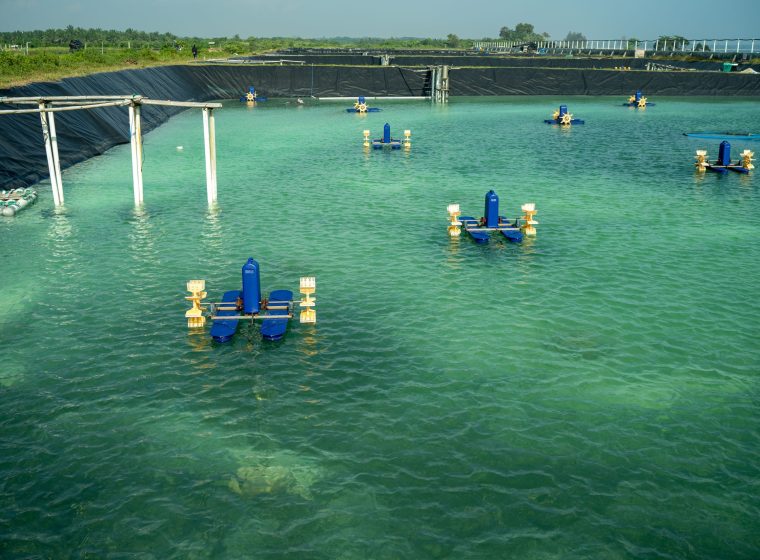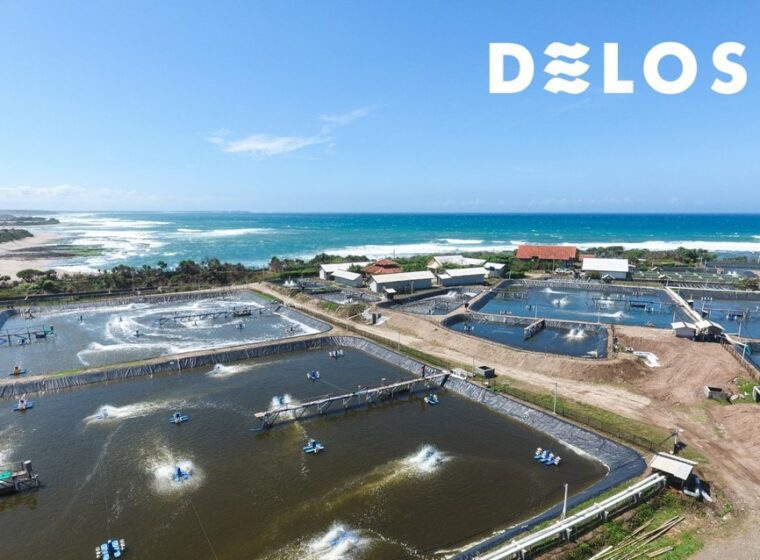Aquaculture is cultivating aquatic organisms, which is increasingly relied upon to meet the growing demand for seafood consumption and reduce fishing practices in the ocean. Despite offering significant potential for food security and economic growth, several challenges in aquaculture require careful consideration and innovative solutions.
In this article, we will further discuss the challenges in aquaculture and the steps taken to ensure the long-term sustainability of this industry.
Also Read: Get to Know the Vannamei Shrimp as a Farmers’ Favorite
Challenges in Aquaculture
1. Environmental Impact
Environmental impact is the biggest challenge in aquaculture that needs to be addressed if cultivation practices are not carried out properly. Responsible practices are essential From waste management to using feed and medications.
To tackle this challenge, stakeholders in the aquaculture industry must focus on implementing sustainable practices such as optimizing feed efficiency and adopting sustainable aquaculture systems with proper waste management.
2. Disease Management
Disease outbreaks pose a significant threat to the aquaculture industry. They can cause economic losses and environmental degradation. Therefore, industry stakeholders must be prepared and vigilant in disease management.
Some measures that can be implemented for disease management in aquaculture include strict biosecurity protocols, vaccination programs, and the development of disease-resistant strains through selective breeding and genetic improvement.
Adopting technology with early monitoring and detection systems through applications like AquaHero can also be a viable option for farmers.
3. Food Production
Food production is a problem that can be addressed through aquaculture, but it can become another issue if not practiced well. Seafood is an important source of nutrition for individuals, besides being more affordable.
By 2030, 62% of seafood supplied and consumed by humans will come from aquaculture. Furthermore, the UN projects that by 2050, there will be 9.7 billion people on Earth, leading to a continuous increase in food demand.
Also Read: 4 Types of Vannamei Shrimp Farms You Have to Know
4. Regulatory Framework
Establishing effective regulations and governance structures is crucial for sustainable aquaculture practices. The development of the aquaculture industry and environmental conservation must always be balanced.
Therefore, transparent and science-based regulations and policies are needed to ensure responsible practices, encourage investment, and build public trust.
In this regard, collaboration among governments, industry associations, and other stakeholders is necessary to develop strong standards and guidelines that support responsible aquaculture practices.
5. Social Acceptance
Perceptions and public acceptance of aquaculture are also one of the challenges in the industry. Concerns about environmental impact, animal welfare, and food safety can influence public support for this industry.
Socialization programs to increase awareness can help address this issue while promoting the positive aspects of aquaculture itself. For example, addressing overfishing, providing sustainable protein sources, and involving local communities directly.
6. Water Quality Management
Another issue in aquaculture is water quality management. Aquaculture practices heavily rely on water quality management, and the quantity and quality of water supply used to rear aquatic organisms are crucial for successful cultivation.
Almost all aquaculture commodities depend on optimal water quality parameters such as dissolved oxygen, temperature, salinity, hardness, ammonia, nitrite, and pH as the environment in which they live and grow.
Also Read: The Importance of Alkalinity in Shrimp Ponds, Check Your Alkalinity Now!
Start Your Vannamei Shrimp Farming Business with DELOS!
The global demand for seafood continues to rise, making aquaculture an increasingly popular choice. However, the industry also faces various challenges. Despite its shortcomings, there have been advancements like those made by DELOS to ensure sustainable practices.
DELOS is an aqua-tech company that provides technology, knowledge, and research to optimize the productivity and management of your vannamei shrimp farming.
DELOS‘ vannamei shrimp farming is supported by the AquaHero application, which enables you to monitor the conditions of your shrimp ponds. From water quality to shrimp growth, required treatments, and estimated break-even points (BAP).
Contact contact@delosaqua.com or submit your vannamei shrimp farming issues in the contact section of our website, www.delosaqua.com. Start your vannamei shrimp farming business with DELOS!




